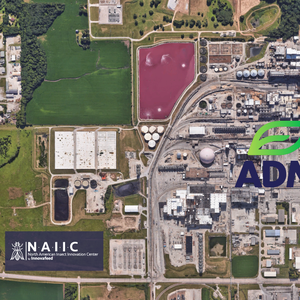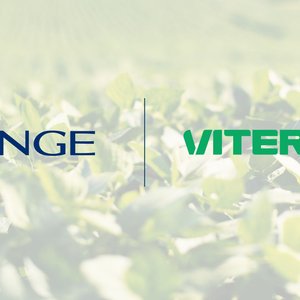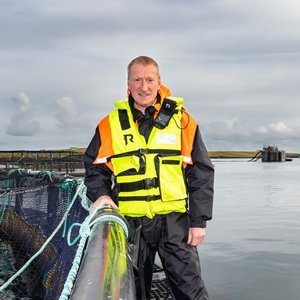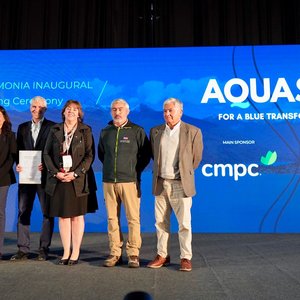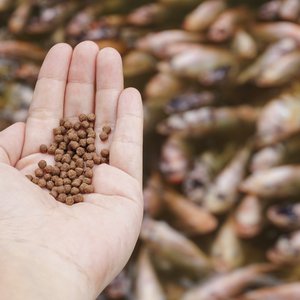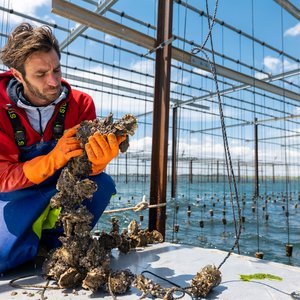The research and education arms of the American Feed Industry Association and National Grain and Feed Association are partnering to finance a major project that will help animal feed, feed ingredient and pet food facilities cost-effectively comply with a core requirement of the Food and Drug Administration\'s final rules implementing the Food Safety Modernization Act (FSMA).
AFIA\'s Institute for Feed Education and Research (IFEEDER) and NGFA\'s National Grain and Feed Foundation (NGFF) are co-sponsors of a hazard evaluation of typical ingredients and processes associated with the manufacturing and distribution of animal feed and pet food being conducted by researchers at the University of Minnesota College of Veterinary Medicine\'s Center for Animal Health and Food Safety (CAHFS). The results of the project are expected to provide a strong scientific basis for identifying hazards and developing a hazard analysis that companies can adapt to their specific operations, thereby potentially saving covered facilities millions of dollars were they to have to perform such an analysis from scratch.
FSMA requires covered animal food facilities to establish and implement an animal food safety system that includes an analysis identifying \"known or reasonably foreseeable\" hazards for each type of animal food manufactured, processed, packed or stored at a facility to determine if any hazards exist that require risk-based preventive controls. Under FDA\'s final animal food rule, a hazard analysis must be reviewed every three years, or earlier, if there are changes to equipment, manufacturing processes or other operations that make a review warranted.
The hazard analysis is required to include an evaluation of the known or reasonably foreseeable hazards to assess: 1) the severity of the illness or injury if the hazard were to occur; and 2) the probability that the hazard will occur in the absence of preventive controls. The hazard evaluation also is required to consider the effect of the following on the safety of the finished animal food for the intended animal:
1. The formulation of the animal food;
2. The condition, function, and design of the facility and equipment;
3. Raw materials and ingredients;
4. Transportation practices;
5. Manufacturing/processing procedures;
6. Packaging activities and labeling activities;
7. Storage and distribution;
8. Intended or reasonably foreseeable use;
9. Sanitation, including employee hygiene;
10. Any other relevant factors.
Under the project, CAHFS will develop a generic hazard analysis and provide it to the two associations\' foundations, which in turn will share it with AFIA- and NGFA-member facilities. Those individual facilities then will be able to use the generic analysis to determine what, if any, \"known or reasonably foreseeable\" hazards at their facilities need to be addressed with either current good manufacturing practices or preventive controls.
\"We are very fortunate we were able to identify the CAHFS as an organization capable of taking this on and at a reasonable cost,\" said Joel G. Newman, AFIA president and CEO and IFEEDER president. \"The interaction with the Center and both of the sponsors to-date has been excellent, and we look forward to receiving the final document and to the symposium IFEEDER is sponsoring at the Joint Annual Meeting this summer to vet the process used to identify these feed hazards.\"
\"This partnership between NGFF and IFEEDER should be indispensable in enabling covered animal food facilities to cost-effectively comply with this core requirement of FDA\'s FSMA final rule,\" said Randy Gordon, NGFA president and NGFF secretary. \"This project will enable companies to jump-start that process by leveraging the expertise at the University of Minnesota\'s CAHFS, making compliance as practical and cost-effective as possible.\"
The total project cost is expected to reach $170,000. CAHFS intends to publish the study\'s methodology and other attributes of the assessment in a peer-reviewed journal. The projected completion date for the project is October 2016.
What is AFIA?
The American Feed Industry Association, based in Arlington, Va., is the world\'s largest organization devoted exclusively to representing the business, legislative and regulatory interests of the U.S. animal feed industry and its suppliers. Founded in 1909, the organization membership is comprised of the total feed industry-from commercial and integrated feed manufacturers, to ingredient suppliers, pet food manufacturers, pharmaceutical companies, industry support and equipment manufacturers. AFIA is also the recognized leader on international industry developments and holds membership in the International Feed Industry Federation.Members include more than 600 domestic and international companies. More than 75 percent of the commercial feed and 70 percent of the non-grain ingredients including soybean meal, distillers co-products, vitamins, minerals, amino acids, yeast products and other miscellaneous/specialty ingredients in the U.S. are manufactured by AFIA members.
What is NGFA?
NGFA, established in 1896, consists of more than 1,050 grain, feed, processing, exporting and other grain-related companies that operate more than 7,000 facilities and handle more than 70 percent of all U.S. grains and oilseeds. Its membership includes grain elevators; feed and feed ingredient manufacturers; biofuels companies; grain and oilseed processors and millers; exporters; livestock and poultry integrators; and associated firms that provide goods and services to the nation\'s grain, feed and processing industry. NGFA also has 26 State and Regional Affiliated Grain, Feed and Agribusiness Associations.


